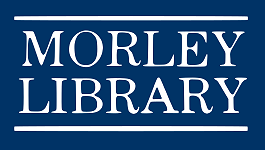 |  |  |  |
Suggestions for Beginners
1. Begin with yourself
It is important, right at the beginning, to learn all about your immediate family. Gather family documents (bibles, letters, etc). Verify birth, marriage and death dates and places. Get the names and addresses of older relatives. Keep careful and detailed notes, date them and be sure to include where you found your information.
2. Interview the older members of your family
Word-of-mouth is still a major source of information. Make a list of questions that you want to ask, perhaps taking a photo album or family heirloom to prompt memories. Consider using a tape recorder or video camera in addition to pen and paper. Use your list of questions as an ice-breaker or guideline. By encouraging your relatives, they may provide other information that you had not thought to ask about. Try not to interrupt their tales too many times. Learn to recognize clues (especially names, dates and places) and follow up on them later.
3. Verify the Information
Verify the information that you have gathered from family sources through courthouse and other records.
4. Visit your local library
Ask if there is a special section set aside for local history and genealogy. See if there are copies of print resources written especially for genealogists and for genealogists researching special topics. Check to see what special files and indexes and collections have been developed (newspaper clippings, obituaries, microfilm, city directories, etc.). Ask about any local, regional and state genealogy and historical societies. Attend any classes offered. Become acquainted with genealogical information offered through the library’s public computer services.
5. Visit the local courthouse in the area you are researching
Unfortunately, the clerks there may be unable to spend time with you. They will, however, direct you to the location of county records. Information on deeds, mortgages, marriages, divorces, civil and criminal court cases, records of wills and settlements of estates (and much more) can be found at the courthouse. Transcriptions of some of these records may be available on the Internet.
6. Visit the courthouse and library in the home county of your ancestors.
If you cannot visit areas your ancestors called home, consider joining a society and/or finding a researcher in those areas. Check the library for organizations and addresses.
7. Correspondence
Correspondence is often the only way to obtain information at a distance. Be brief. Be specific. ALWAYS enclose a SELF-ADDRESSED STAMPED ENVELOPE in EVERY letter you expect to have answered. When writing to libraries and courthouses, expect to pay a fee, either for photocopies or for records. At times, a fee will need to be paid before a record can be sent.
8. Date and record
Date and record what you have learned, indicating the source of each fact. Note not only a description of the work itself, but also the location within the resource that contained the information you copied. Consider copying the title page or cover. Also note the owner of the resource, in case you want to consult in again. Develop a filing system for yourself in order to easily locate specific pieces of information as your collection expands.
9. Completing a family history
Researching a family history is an interesting hobby that may take many years of research at much expanse. Recent Internet resources can save much time and money. But whatever your investment, you may want to have your family history copied or printed to preserve it for your children and future generations. Making many copies will also be a safeguard against all your work being lost should anything happen to you or your notes.
Page last updated 20 March 2013. / From a handout prepared by the Morley Library Genealogy staff member in February 2007.
